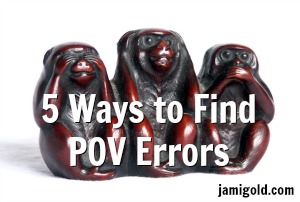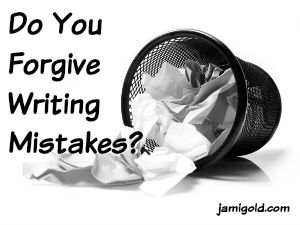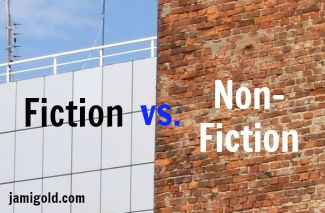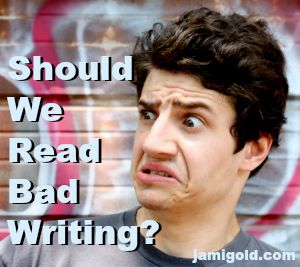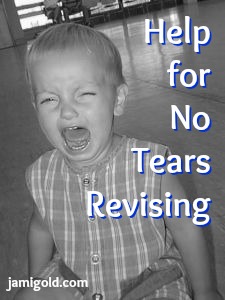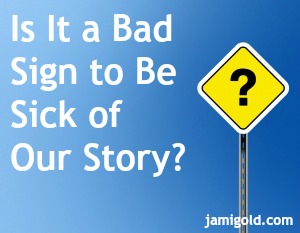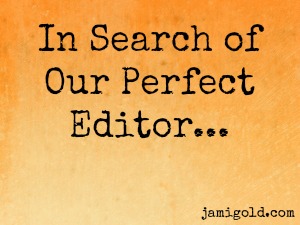As we learn writing craft, we often go through phases. Just when we think we know everything there is to know, we discover another area to learn. One area I struggle with, even though I know the rules, is out-of-POV phrases. Luckily, one of my editors is a genius at finding these, and she’s here to share her tips.
Pin It
Read More
An interesting conversation grew out of Misti Wolanski’s guest post earlier this week. She mentioned that sometimes readers enjoy finding typos. Let’s take a closer look at what that means for readers and for us as authors? Should we leave typos in our work? What say you…
Pin It
Read More
Many writers write both fiction and non-fiction (even if the latter is just blog posts), but the two types of writing require different skills—from authors and from editors. The better we understand the differences, the better we can follow the right rules at the right time and the better we can judge whether an editor is skilled in the right areas to be a good editor for us.
Pin It
Read More
When we end up with a “dud” of bad writing from a book we’ve purchased, what should we do? Should we treat it as a learning experience or just close the book? My answer has changed over the years, so let’s take a closer look at when we might want to slog through bad writing to try to learn what not to do—and when we wouldn’t.
Pin It
Read More
Revisions are never easy. Unlike just plain edits, which might have us questioning a word, revisions might have us questioning everything. Sometimes the feedback we receive might cause us to wonder if the suggestions are a good idea for our story. How can we tell? Which battles should we pick when debating our publisher’s editor?
Pin It
Read More
If you’re anything like me, you might have a love/hate relationship with revisions. I love seeing my story strengthen and improve, but I hate the struggle. Today my guest poster is sharing a worksheet to help us find the important aspects of each scene so we can revise without tears.
Pin It
Read More
When it comes to learning about point of view and how to avoid issues like head-hopping, it doesn’t help that half the information out there is confusing and contradictory. Let’s take a closer look at how we can find and fix these issues.
Pin It
Read More
When we first start writing our story, we’re filled with passion for the idea. But at some point, we might dread working on our story. Is that a warning sign? Or should we plow forward anyway?
Pin It
Read More
Everything we write should be intentional—the words we use, the events we emphasize, the emotions we evoke, the themes we build, etc. But when our writing doesn’t match our intentions, we might need trusted feedback that forces us to justify our choices.
Pin It
Read More
Last week, we talked about the different kinds of editing and editors, and we also talked about how to evaluate editors. Now let’s dig deeper into some of the variations we might encounter when evaluating editors. By understanding these variations, we might better be able to find our perfect match.
Pin It
Read More

